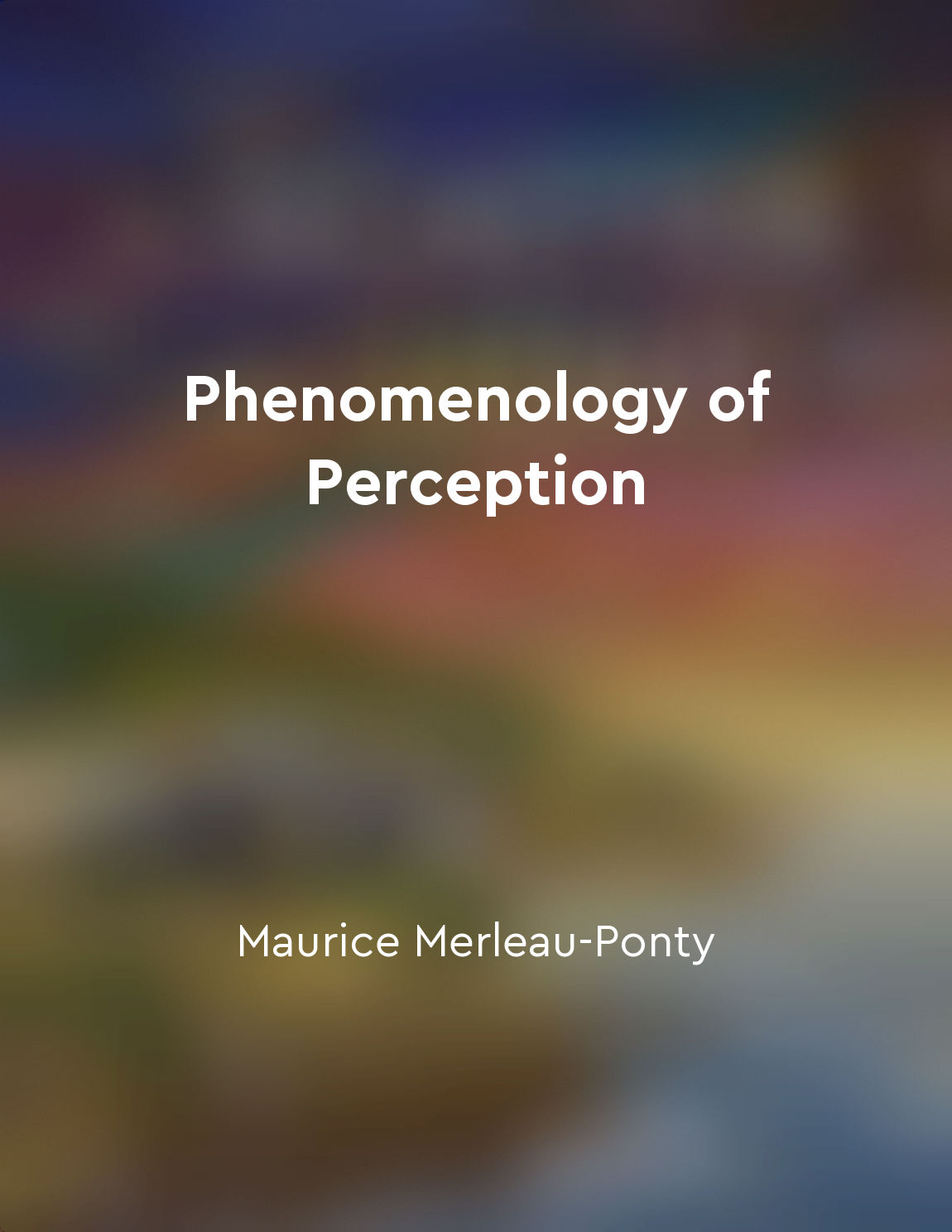The mind can compensate for visual deficits from "summary" of The Mind's Eye by Oliver Sacks
Oliver Sacks explores the remarkable ability of the mind to adapt and compensate for visual deficits in individuals with conditions such as blindness or impaired vision. He delves into case studies where patients have lost their sight due to various reasons, yet their minds have found ways to make up for this loss. One fascinating example is that of Zoltan Torey, who became blind after a traumatic accident. Despite his inability to see, Torey developed an acute sense of spatial awareness and an ability to accurately navigate his surroundings. Through auditory cues and tactile sensations, Torey was able to construct a mental map of the world around him, allowing him to move with confidence and precision. Sacks also discusses the phenomenon of blindsight, where individuals with damage to the visual cortex are still able to respond to visual stimuli unconsciously. These patients may claim to be...Similar Posts
Mental images are not private pictures
The notion that mental images are not private pictures challenges the common belief that our thoughts are like internal snapsho...

Challenge yourself to think beyond your comfort zone
When faced with new or challenging situations, our brains often default to familiar patterns of thinking. This is because our b...
Every brain is wired differently
The brain is a complex organ that plays a critical role in shaping who we are as individuals. It is responsible for processing ...

Dr. Sacks' approach to patient care is founded on respect and compassion
Dr. Sacks' approach to patient care is deeply rooted in the values of respect and compassion. Throughout the clinical tales he ...
We are not aware of many of the processes that guide our thoughts and behaviors
Our minds are not as transparent to us as we might think. Many of the processes that shape our thoughts and behaviors operate b...
Reality shaped by mind
The idea that reality is shaped by the mind is not a new one. Philosophers have grappled with this concept for centuries, but r...

The body has its own intelligence and agency
The body is not just an object that we have, but it is also a subject that actively engages with the world. It possesses its ow...
Experience shapes brain connections
Our brains are incredibly complex organs that are constantly changing and adapting based on our experiences. Every time we lear...
Grand Unified Theory could explain universe's laws
The idea of a Grand Unified Theory has intrigued scientists for decades, offering the potential to explain the fundamental laws...
